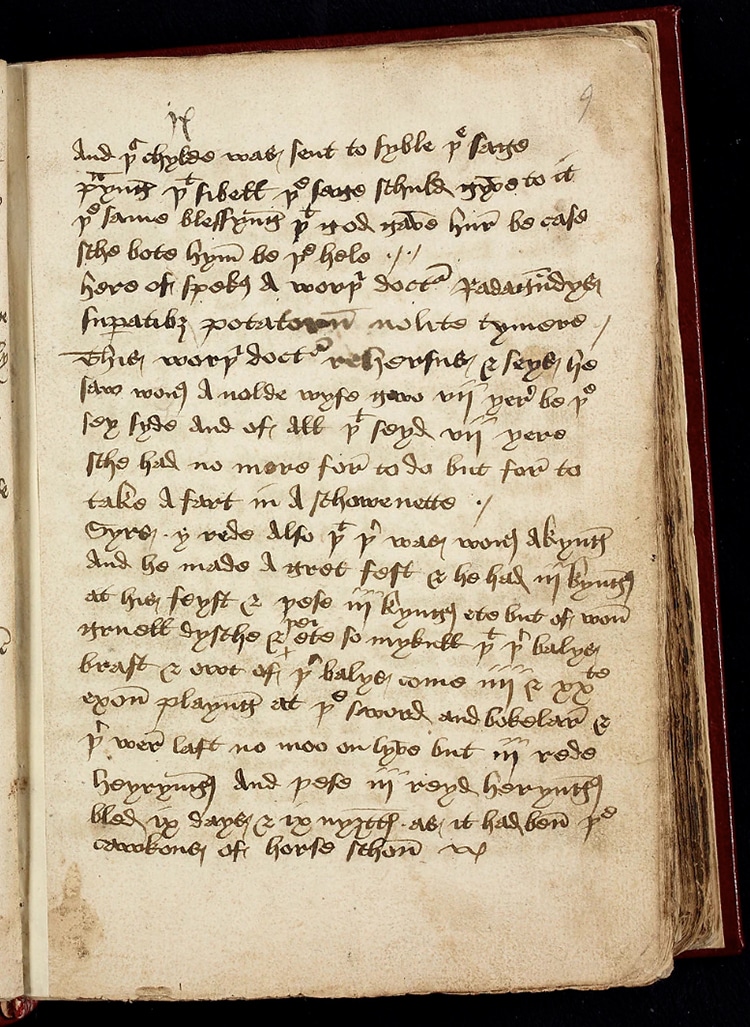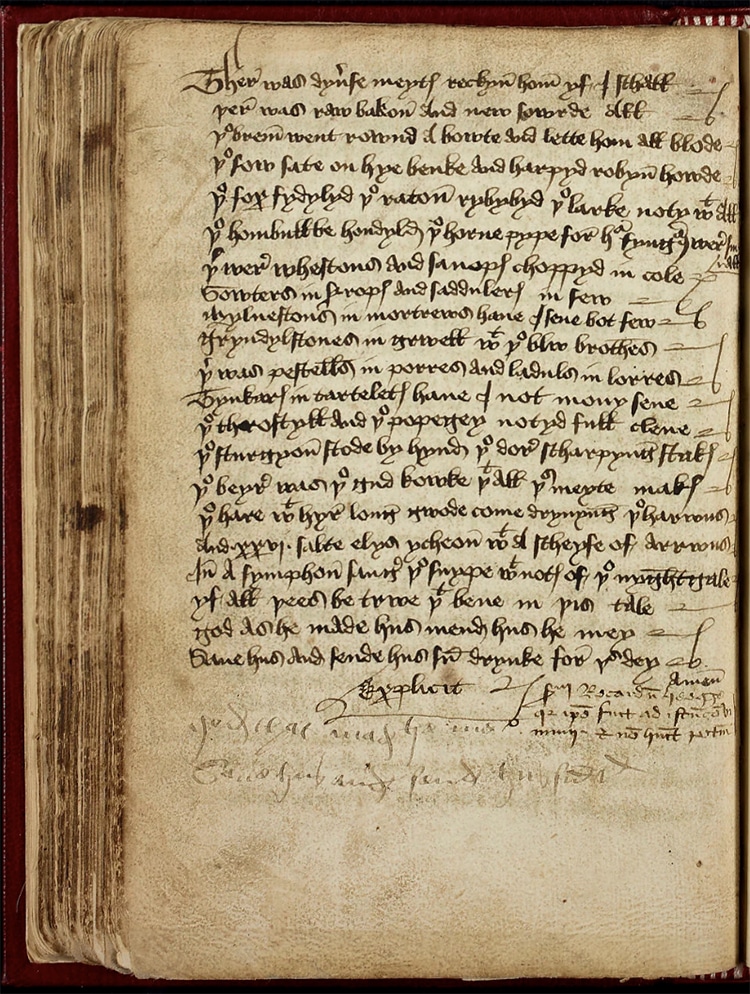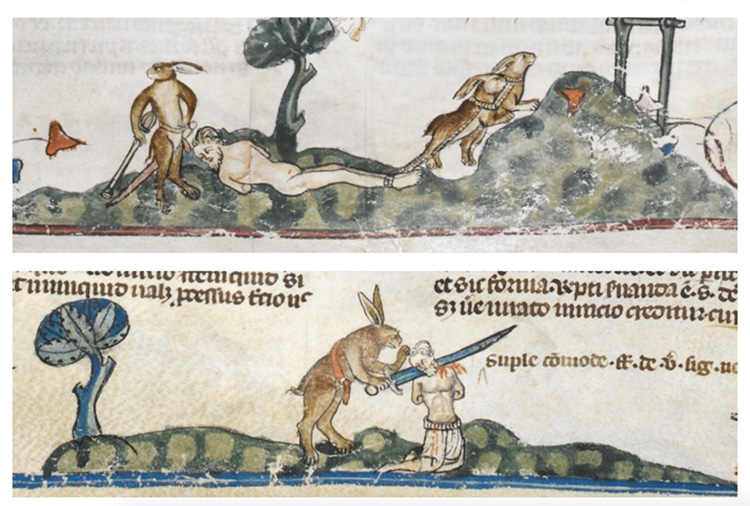
The first known mention of the phrase “red herring” in its modern meaning. (Photo: National Library of Scotland)
One can find fascinating, surprising things in medieval manuscripts. These rich records of history and culture include anything from a list of herbs or religious prayers to innovative dog names and pictures of cute kittens. Time-consuming to create, expensive to buy, and precious to pass on, these books hold a certain fascination today. A new find suggests they may even provide insight into the history of comedy. Before there was Monty Python, there was Richard Heege. His manuscript is a rare record of a real-life performer's “stand up” comedy in the 15th century, and it includes the first recorded use of the phrase “red herring” in its modern meaning.
The comedic value in this manuscript, held by the National Library of Scotland, was noted recently by Dr. James Wade, a scholar at Cambridge, in the Review of English Studies. “We shouldn’t assume that popular entertainers weren’t capable of poetic achievement. This minstrel clearly was,” explains Dr. Wade. Around 1480, Heege copied three texts by hand into a volume. He likely copied the storylines from a memory-aid for minstrels, traveling performers who made their living entertaining crowds across England. Much of the humor contained within could be considered slapstick sketch comedy, by today’s standards.
The three texts include a burlesque romance called The Hunting of the Hare, a “mock sermon in prose,” and The Battle of Brackonwet, nonsensical verse. The Hunting of the Hare features killer rabbits, a trope often seen in medieval literature and in the Beast of Caerbannog of Monty Python fame: “Jack Wade was never so sad / As when the hare trod on his head / In case she would have ripped out his throat.” The hunted become the hunters. The next piece, the “sermon,” then encourages drinking and references popular drinking ballads. In poking criticism at the nobles of the day, the author calls events a “red herring” or distraction. This is the first known reference of the phrase in this meaning.
Lastly, The Battle of Brackonwet invokes the famous robin hood among a cast of trippy characters, such as jousting bears, that would have been at home in Disney's film. “Heege gives us the rarest glimpse of a medieval world rich in oral storytelling and popular entertainments,” says Wade. In the late 15th century, society was changing. Heege, who was a tutor to a wealthy family, captured this change in a rare insight into a vanished culture. “These texts remind us that festive entertainment was flourishing at a time of growing social mobility. People back then partied a lot more than we do today, so minstrels had plenty of opportunities to perform. They were really important figures in people’s lives right across the social hierarchy. These texts give us a snapshot of medieval life being lived well.”
This medieval manuscript from the 15th century contains fantastical jokes and sassy social critique.

Scribe's additions to Richard Heeg's comedic manuscript. (Photo: National Library of Scotland)

Killer rabbits are a theme in medieval literature. (Photo: The Smithfield Decretals, decorated in London, England, in the 1340s: Royal MS 10 E IV, f. 59v-61v/British Library)
No comments:
Post a Comment